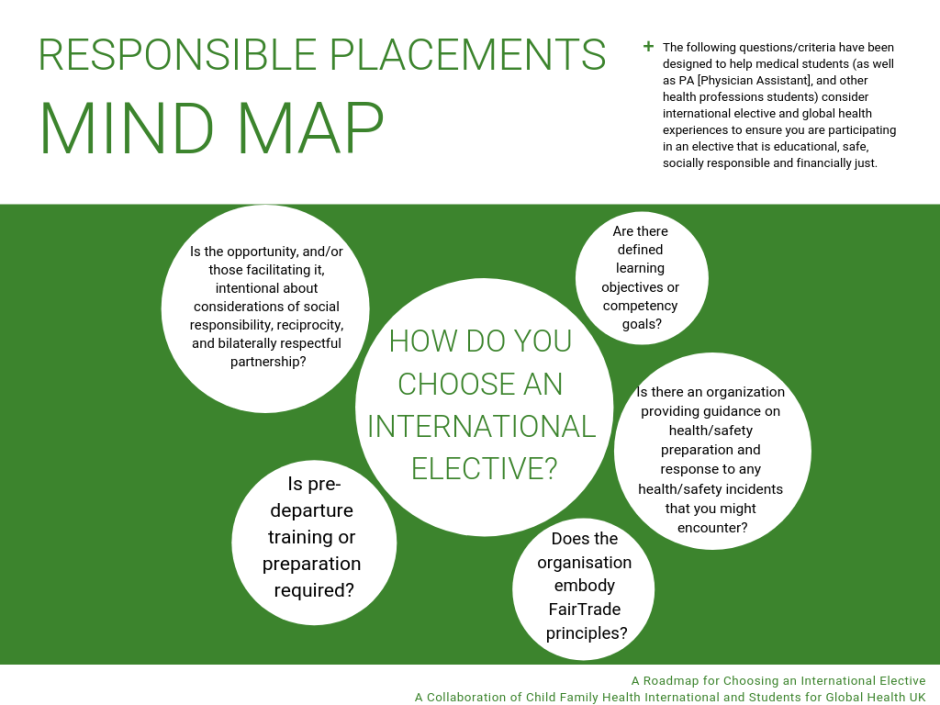HOW DO YOU CHOOSE AN INTERNATIONAL ELECTIVE?
Doing your homework…and why you have to do it!
The following criteria have been designed to help medical students (as well as PA [Physician Assistant], and other health professions students) consider international elective and global health experiences to ensure you are participating in an elective that is educational, safe, socially responsible and financially just.
Why is this important? There are lots of complex relationships and realities at play during an international elective, particularly when that elective takes place in a country where resources are limited, including medical supplies, healthcare workers, and money more broadly. In addition, there are the realities of ‘colonialism’ and ‘neocolonialism’ that may be a pretext for a student or faculty member coming from a high income country to a low or middle income country. A classic reading on this dynamic is the speech by Ivan Illich “To Hell With Good Intentions.”
Want to find out what a low or middle income country is? Learn more about the World Bank income groups.
We hope the below tool can be applied to any global health educational program abroad. We don’t mean to be negative about international electives, there are a lot of great skills, knowledge, and attitudes (called ‘competencies’ in education speak- click here to learn more about global health competencies).To make sure you are getting what you can out of the experience and doing your best to not make mistakes in your approach or your actual elective choice, check out the below roadmap to guide your decision!
This checklist has been peer reviewed by some amazing leaders in the field of global health and medical education, learn more about them here. Also, we are open to your feedback, so contact us!
Pre-departure training
Pre-Departure Training (education) is the content and structured contemplation that happens before you start the experiential learning component of an international elective. It may take several forms, from an organised pre-elective training day to completion of online pre-elective training modules.
Defined learning objectives and competency development goals
Review the learning objectives/competencies and consider if they are aligned with your goals and are appropriate for your level of proficiency. This should also include some form of evaluation or impact assessment at the end.
Provision of health and safety preparation and response to incidents you may encounter
This includes pre-departure preparation, such as immunisations, and support while you’re away. Looking into what codes of conduct are in place is also an important step.
Understanding the organisation’s approach to social responsibility, sustainability of programming, and partnerships
Looking into the organisation’s position on social and environmental responsibility, their local involvement and whether their marketing is responsible is essential – as well as what actions you can see, beyond words on a website.
Ensuring your international elective embodies FairTrade principles
This means looking at their economic model and employment systems. FairTrade learning is an approach to learning in resource-limited settings that was developed and refined by organizations and professionals working global health and international education

